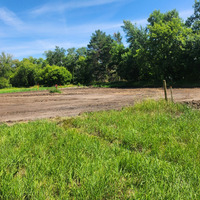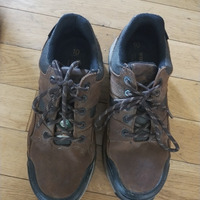The family of a First Nations woman who died at the hands of a Winnipeg serial killer hopes a special court hearing will help them heal and move on almost a year after the trial.
The family of 30-year-old Ashlee Shingoose, who was identified in March as the unknown victim in the case, will have the chance to give victim impact statements in court on Aug. 15.
"We hope that this special hearing not only brings some measure of peace to our family, but also affirms the dignity and humanity of Ashlee, who was a beloved daughter, relative and community member of the St. Theresa Point Anisininew Nation," the family said in a statement Thursday.
Manitoba Court of King's Bench agreed to a Crown request for the hearing, saying in a statement it's "both appropriate and necessary in these exceptional circumstances."
Shingoose was one of four First Nations women killed by Jeremy Skibicki in Winnipeg in 2022.
His trial heard he targeted the women at homeless shelters in Winnipeg and disposed of their bodies in garbage bins.
Skibicki admitted to the slayings but argued he was not criminally responsible due to a mental illness. He was convicted of first-degree murder and sentenced last August to life in prison.
At the time of the trial, Shingoose had not been identified and was referred to in court as Mashkode Bizhiki'ikwe, or Buffalo Woman, a name given to her by Indigenous grassroots community members.
Months later, police announced that interviews with Skibicki after the trial, along with DNA evidence, led them to identify Buffalo Woman as Shingoose.
The court said the hearing will give the woman's family the same opportunity as relatives of the other victims, to acknowledge the "dignity of the victim and make real the suffering of, and impact on, the victim's family."
"It is an opportunity that would have been afforded them had Ms. Shingoose been identified prior to the sentencing of Mr. Skibicki for her murder, a sentencing which is now complete," it said.
Police first became aware of Skibicki's crimes after the remains of Rebecca Contois were discovered in a garbage bin in May 2022. More of her remains were found at the Brady Road landfill.
The remains of Morgan Harris and Marcedes Myran were discovered this year at the Prairie Green landfill north of Winnipeg.
It's believed Shingoose's remains also were sent to the Brady Road landfill. Premier Wab Kinew has promised her family there would be a search of the site for her remains, but it hasn't been announced when that might start.
Chief Justice Glenn Joyal, who convicted Skibicki, is expected to preside over the hearing, where he is to provide more details about its "extraordinarily unique circumstances," the court said.
A Winnipeg law professor said he's unaware of another case where a court has held a special sitting for a retroactive victim impact statement. He cautioned over the implications of such a hearing.
"While I understand that these are tragic and unique circumstances, it is important to guard against the risk of this situation setting a potentially problematic precedent," Brandon Trask, an associate professor at the University of Manitoba, said in an email.
"Subject to any potential appeal process, our legal system emphasizes the need for finality, which is why trial courts typically lose jurisdiction over a matter once it has concluded."
The court acknowledged its legal limitations because the trial has finished. It said nothing will affect the legal jeopardy of Skibicki.
"The court has had to reflect on both the legal parameters and institutional duties and opportunities that this situation presents for the purpose of providing a fair process that both enhances public confidence and promotes institutional reconciliation," it said.
It added it can't order Skibicki to attend the hearing but that his lawyers will be there.
This report by The Canadian Press was first published Aug. 7, 2025.





















